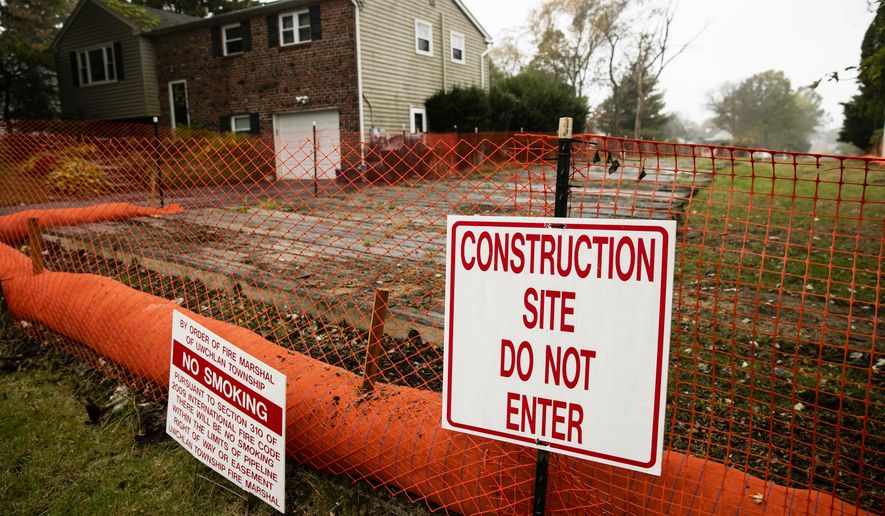House Democrats blocked Tuesday consideration of a resolution in support of hydraulic fracturing as Republicans sought to protect the U.S. energy boom from Democratic presidential candidates seeking to ban fracking nationwide.
The resolution, sponsored by Rep. Rob Bishop, Utah Republican, affirmed that states should “maintain primacy for the regulation of hydraulic fracturing for oil and natural gas production on State and private lands,” and that no president should impose a moratorium without congressional approval.
“In recent weeks, many of the Democratic candidates for president have pledged to ban hydraulic fracturing in the United States, a campaign promise straight out of the keep-it-in-the-ground playbook,” said Rep. Debbie Lesko, Arizona Republican, in a floor speech.
Sens. Kamala Harris, Bernard Sanders and Elizabeth Warren, all 2020 Democratic presidential hopfeuls, have called for a nationwide ban on fracking, an extraction process used in the vast majority of U.S. natural gas production.
“Any proposal to avert the climate crisis must include a full fracking ban on public and private lands,” Mr. Sanders tweeted last month.
Another dozen Democratic presidential candidates have said they support ending fossil-fuel extraction on federal lands.
FLOOR ALERT: Democrats just blocked @RepDLesko’s request to prevent the Administration - and any future president - from imposing a ban on hydraulic fracking. #jobs #americanenergy pic.twitter.com/etYHHEKbw3
— HouseRulesRepublicans (@RulesReps) October 29, 2019
Democrats blocked the option to consider a resolution affirming state primacy over the regulation of hydraulic fracturing, a technology that’s enabled America’s energy revolution and delivered lower energy prices for consumers in a safer, cleaner way https://t.co/Q5CkYqopSf
— Natural Resources GOP (@NatResources) October 29, 2019
Ms. Lesko argued that fracking is already heavy regulated by states, adding that the fracking revolution has reduced energy bills and greenhouse-gas emissions as natural gas replaces coal in U.S. electricity generation.
“After the introduction of hydraulic fracturing techniques, U.S. gas bills fell by $13 billion collectively every year from 2007-13,” she said. “All the while, natural gas production using fracking is driving the lowest emissions levels in a generation.”
Such a moratorium would force the increasingly energy-independent United States to rely once again on foreign oil and natural gas imports, she added.
Fracking foes have argued that the process creates health risks for nearby communities, which the industry denies, and contributes to the “climate crisis” by encouraging the use of fossil fuels instead of green energy.
In 2016, a federal judge struck down the Obama administration’s fracking regulations, ruling that the states have authority over the process.
Kathleen Sgamma, president of Western Energy Alliance, said that even though no vote was held, the resolution served as a useful reminder to Democrats that “the president does not have the authority to ban fracking.”
“It’s kind of a proactive measure to buttress the fact that there’s no federal mechanism to regulate fracking,” she said, adding, “Quite frankly, I’m not really afraid of a President Warren’s executive order on fracking, because it’s just such an overreach. It’s so beyond presidential power that the industry would sue the next day. And we would win in court.”
• Valerie Richardson can be reached at vrichardson@washingtontimes.com.




Please read our comment policy before commenting.